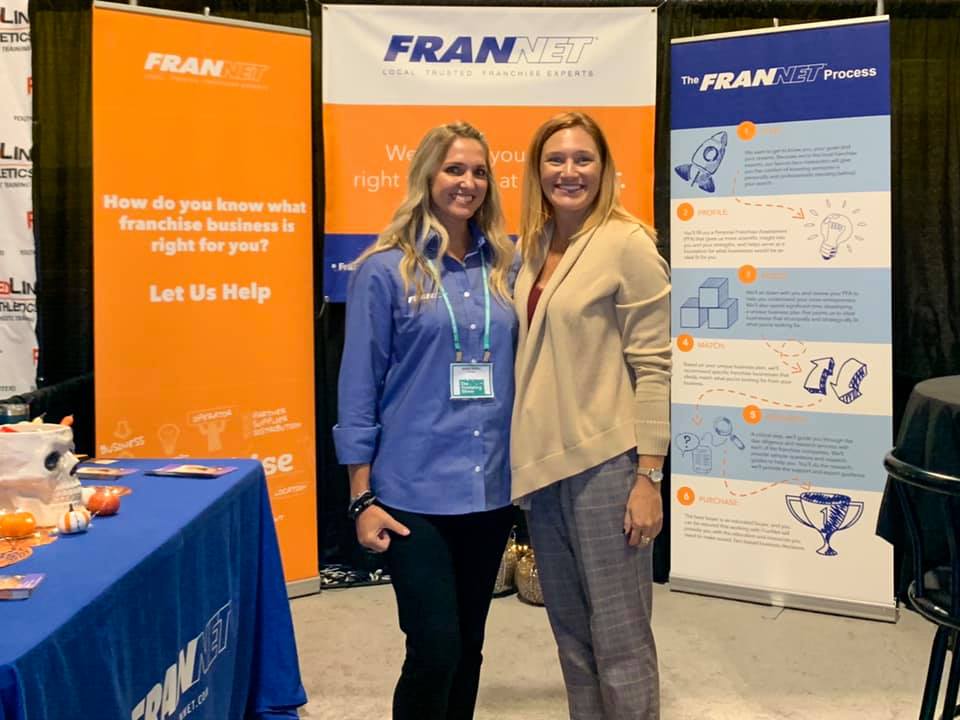By Sara DiNatale
Tampa Bay Times
WWR Article Summary (tl;dr) Jenny Sutter guides hopeful small business owners to explore the world of franchising. Sutter shares some important things to consider before making the leap to becoming a franchise owner.
Tampa
People come to Jenny Sutter when they want to become a franchisee but don’t know where to start.
As a Tampa-based consultant for FranNet, Sutter helps clients sift through dozens of franchise businesses to pick the best fit. She guides entrepreneurs through mountains of research and helps them set up shop.
Sutter said her average client right now has about $150,000 to $200,000 in liquidity to set up a franchise operation. That amount, which usually includes some loans, covers the initial start-up fees as well as signing a lease and building out a new space. Sutter’s job is to suss out who is equipped to actually do that. It’s not the right move for everyone, even if they have the funding.
First, can you explain what a franchise is and what it means to be a franchise owner?
A franchise is the rights to use trademark licenses, systems, trainings and the trademark of the franchise in exchange for money. There is an initial franchise fee that franchisees will have to pay in order to get the rights. Also there are royalties that usually have to be paid. Every franchise is a little bit different in how they structure their franchise fee and how they structure their royalties.
Given there is so much economic uncertainty right now, how can someone know that pursuing this type of business is the right decision?
Just like with anything else, whether it’s pursuing a franchise, starting your own business or buying an existing business, there is no certainty. There is always going to be a certain level of risk that you have to take on. With a franchise, a lot of people do feel it could minimize some risk in the sense that you have the franchise organization there to back you. They have a vested interest in the franchisee doing well because that is how they make their money.
So, it’s really going to be dependent on the individual to dig in and do the right research on the franchise in order for them to feel that level of risk is comfortable.
Do you have any research tips?
Franchises are federally regulated. To be a franchise you have to have what’s called a franchise disclosure document. It’s kind of like the inner workings of the franchise. If you printed it out, it would be more than an inch-and-a-half thick. There is a lot of information included in there, a lot of really important information. Really dig in; ask questions.
It’s also very important to speak with existing franchise owners. Talk to them. What does a day in their life look like? What are their hardships? Would they do it again?
Why does franchising seem to get a bump in activity during times of high unemployment?
It’s a slap in the face to get laid off. It can be very frustrating to find a new job. A franchise can be an opportunity. Another reason is that people are wondering, “What if I get laid off from my job?” So they begin looking for additional revenue streams. Just like people invest in real estate, some people invest in franchises so they can diversify their portfolio.
There are people who maybe don’t get laid off, who see what’s happening around them (and think) maybe I should prepared myself for the future. Maybe I can control my own destiny rather than just hoping things work out.
What industries do you see having the biggest growth right now within the Tampa Bay franchise market?
With COVID, a lot of the essential services are still being sought after. They never had a lapse in time where they weren’t able to operate. I have been talking to a lot of people about those types of businesses. Those are in a lot of industries — everything from residential services to business services.
Everyone is at home. People are sitting around looking at their pools. They have to do something with their kids, so, pool services. Think heating and air services. Anything you need to fix your house: handyman services, damage, restoration. I could go on and on. Really, anything that touches your house. All kinds of cleaning services, both residential and commercial.
Are there franchises segments you see being able to bounce back quicker than others during the pandemic?
I’ve already seen it with fitness, especially boutique fitness. They were down and out for a couple months but in many cases, with their reoccurring revenue or membership model, they may or may not have lost that money. If they were able to pivot to a virtual experience, people were still paying that membership. They may have lost some members but I’m seeing that now that they’re opening back up again, they’re opening even stronger.
What are some common pitfalls for new franchisees?
Just because something is a passion of yours doesn’t mean you’d like running it as a business. Maybe you’re a yoga instructor, but the business side of yoga is much different than teaching it. You have to be passionate about your business, but turning a hobby into a business isn’t always the best move.
Be more open minded to what’s out there. Sometimes I’m talking to clients and I find something that checks all their boxes, but they say they could never imagine doing that. But they have to understand what it’s like to operate within the business. Probably 90 percent of my clients wound up with franchises where they never imagined themselves in that industry.
___
Distributed by Tribune Content Agency, LLC.
















































































































































































































































































































































































